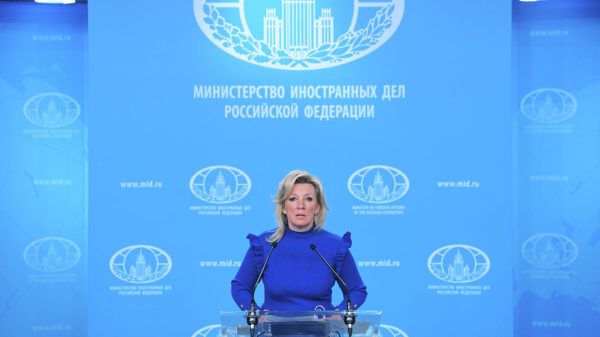
This year one in every 33 people across the world will need humanitarian assistance. That is a rise of 40% from last year, according to the UN. More than half of the countries requiring aid to help deal with the coronavirus pandemic are already in protracted crises, coping with conflict or natural disasters.
Even before Covid-19 threw decades of progress on extreme poverty, healthcare and education into reverse, aid budgets were heading in the wrong direction. In 2020, the UN had just 48% of its $38.5bn (£28bn) in funding appeals met, compared with 63% of $29bn sought in 2019.
The UK’s cuts to aid alone, from 0.7% to 0.5% of gross national income, are projected by aid groups and MPs to result in 100,000 deaths, 1 million girls leaving school and 5.6 million children going unvaccinated.
“Need is outstripping funding,” said Angus Urquhart, crisis and humanitarian lead at Development Initiatives. “We’re seeing a perfect storm gathering.”
The pandemic was “increasing the demands made on governments and institutions while simultaneously eroding their capacity to respond to people in crisis”, he said.
But with a knack for exposing weaknesses, coronavirus has also thrown the institutionalised shortcomings and inequalities of the aid system itself into sharp relief.

Development experts and critics who spoke to the Guardian called for a global reset of an aid industry they say is outdated and already facing pressure to reform. They want international charities and NGOs to root themselves in communities, to decentralise their western-centred power, and to trust and invest in the people they are supposed to help. One described the narrative where an aid donor is generous and the recipient needy as “unhelpful and inaccurate”.
Last year was when “people realised we’re all connected”, said Jonathan Glennie, author of The Future of Aid: Global Public Investment. “With Black Lives Matter and decolonising aid, there’s a huge pressure on the sector to change. People are longing for a significant shift.”
Aid spending in Africa must be African-led – it needs a Black Lives Matter reckoning | Dedo Baranshamaje and Katie Bunten-Wamaru
Read more
Dividing countries into donors and recipients was “unhelpful and inaccurate” when poor countries are contributing heavily to sustainable development, he said.
“The aid system is irrevocably old-fashioned … but it’s 2021.”
Cash is still needed to tackle poverty, the climate crisis and Covid, and Glennie advocates a “global public investment (GPI)” fund paid into by all nations as a percentage of GDP, to be used for the “common good”.
“There’s the whole south-south cooperation. Countries like Colombia are contributing and receiving global finance for development. Even Sierra Leone should give 0.7% of its GDP to global development. If that sounds radical, look at the list of countries contributing to the Global Fund, including Burkina Faso and Zimbabwe. Nigeria contributes to global peacekeepers. China and India give vast amounts.
“We’ve set up a system where overseas development assistance is aid and there’s a group of 30 wealthy countries that give aid. But a lot of south-south cooperation is not money but time. Brazil’s health officials go to Mozambique. Cuba sends doctors all over the world. In the UK we would monetise that. But it’s called solidarity.”
He added: “When we move away from donor-recipient language we will see a shift.”
Sara Pantuliano, chief executive of the Overseas Development Institute (ODI), believes we are witnessing a “serious crisis of legitimacy” of aid structures.
“What we are seeing is this dearth of cooperation. This is what the crisis has put into sharp relief. The need to work together has become more and more apparent. The myopia of governments that are not looking at working more closely together is showing,” she said. “This is the moment to reshape.”
Citing coalitions pulling together after periods of crisis – the UN after the second world war, the G7 after the Gulf war and the G20 after the 2008 financial crash – she said: “Inevitably this will be a moment of rethinking of multilateralism and one that is long overdue.”
“We will only get better once there is enough social pressure to change. We’ve seen social movement during the pandemic, around equality issues around racist issues.”

Gordon Brown, the former UK prime minister, who was at the heart of tackling the banking meltdown in 2008, has urged world leaders to create a temporary form of global government to tackle the Covid-19 pandemic fallout.
And the current aid model means not enough money goes to local and national responders, said Harpinder Collacott, executive director of Development Initiatives.
An international target set four years ago at the World Humanitarian Summit for 25% of aid to go to grassroots organisations by 2020 has failed, she said.
“Our analysis shows about 2.1% of international aid goes to local NGOs,” said Collacott.
Class cancelled: how Covid school closures blocked routes out of poverty
Read more
Jessica Neuwirth, co-founder of Equality Now and director of the women’s rights organisation Donor Direct Action (DDA), which links activists with funding and political power, said direct funding to local organisations is the exception rather than the rule.
Analysis of OECD data by DDA found that of the billions in aid to civil society organisations working to ensure gender equality in the global south in 2018, only 8% went to groups that were based in developing countries.
“A lot of international NGOs are taking a slice off the middle and giving a fraction to these frontline groups. But if you give directly to frontline groups you are giving them a chance to have their own ideas and a chance to get bigger.”

Neuwirth, who co-convened DDA with feminist Gloria Steinem and former UN high commissioner Navi Pillay, said: “Grassroots groups are a much more efficient and effective way to deal with development and a zillion other issues. They know what works and what doesn’t, they are committed to change in a way that outsiders are not and they are a lot cheaper.”
International NGOs, even if they hire locally, often act as “implementing agencies” for their own agendas, she said.
“There’s a trend for iNGOs to hire a national to run a country office. But that creates a domestic brain drain, because no one then wants to work for a local group for less money. And international NGOs act as an implementing agency for the donors. You don’t see the sort of change you get with local agencies.”
Data analysed by ODI researchers published in November found “principled aid spending” was falling among 29 governments. The three key reasons for the trend were: the pandemic, the rift between China and the US which is “threatening global consensus building”, and “aid nationalism” which demands mutual benefits from aid.
Neuwirth’s organisation is trying to change funding streams by linking donors with groups directly. It also encourages women leaders to speak up at the UN security council, to tell people: “You know what you are doing in my country it is not working and here’s why.”
Muthoni Wanyeki, regional director for Africa at Open Society Foundations, said she has seen an impressive response to the pandemic from the African Union and the Africa Centres for Disease Control and Prevention in planning mitigation and surveillance strategies as far back as January 2020, as well as from communities themselves. The effect of lockdowns, curfews and states of emergency was extreme, she said, but they produced an “amazing” response.
“It impacted people’s livelihoods, their ability to move around, to get food to markets,” Wanyeki said. “But Africans responded. We saw incredible use of mobile money. Ordinary citizens setting up their own little cash transfer programmes, for poor families. There was one in Kenya, called Humanity Kenya, where one woman ended up supporting 4,000 families. You are not talking large amounts, but enough for people to get by. People respond to African influencers and money poured in from the diaspora.”
The pandemic has prompted debate on the continent about the need for social protections, and more informed interest in healthcare, pension systems and money-saving loan schemes – called chamas or tontins in west Africa, where they are traditionally used by women for school fees or to absorb financial shocks.
“There’s been a debate around how states recognise, support and even co-fund these groups,” she said.
Simon O’Connell of SNV, a Dutch-based development group, and former executive director of Mercy Corps Europe, said the aid sector “needs to step up and do more with less. Overseas development budgets are declining and they have been for a long time.”

The pandemic has already forced restructuring. Oxfam International laid off 1,500 staff and closed operations in 18 countries last May, after a series of crises, including the Haiti sexual abuse scandal. A survey by Bond last October revealed that almost half of UK development organisations are expecting to shrink.
“The reality is, international NGOs will be forced to collaborate and operate differently,” O’ Connell said. “Some will reduce their international footprint, some of them will look to operate in different ways, because they have no choice.”
There were, he said, too many small- to medium-sized NGOs with similar aims operating across the same geographies.
For example, there are about 100 NGOs in Sudan, and if each had its own country director, finance director and operations director, that would run to half a million dollars each, he said. “If donors are saying they are committed to localisation, and if we as a sector consolidate at an international level, then more money is freed up to go to local organisations.”
“We need to stop focusing on our brands, our identities, on the winning of project funding and the delivery of projects, and shift on to the winning of bigger outcomes, to ensure no one slips further into extreme poverty.”
Arbie Baguios, founder of Aid Re-imagined, said change to date had been too reliant on internal reformers in positions of power. What was required was a “shift in power and control” from international to local.
“It’s hard for any organisation to give up power,” said Baguios. “The first step is to recognise this and talk about these issues. They should be asking: ‘What can my organisation, based in the global north, do to work with local actors to come up with their own solutions to their own problems?’”

























































Свежие комментарии